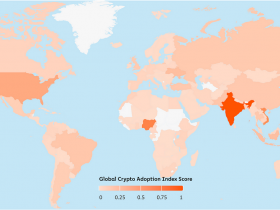Cryptocurrency is a fascinating and promising field, but it also has its share of con artists. Because Bitcoin, Ethereum, and other digital currencies are becoming more and more popular, it’s important to know about typical scams and how to stay safe. In addition to listing some of the most common cryptocurrency frauds, this blog post offers helpful advice on how to properly navigate the crypto world.
Common Cryptocurrency Scams:
- Phishing Scams: These scams often involve emails, messages, or fake websites that mimic legitimate exchanges or wallets. They aim to trick you into revealing your login credentials, private keys, or other sensitive information, giving the scammers access to your funds. Be wary of unsolicited messages or emails asking for personal information. Always double-check the website address and never click on suspicious links.
- Pump and Dump Schemes: In these schemes, scammers artificially inflate the price of a cryptocurrency by spreading misleading or exaggerated information. Once the price surges, they “dump” their holdings, leaving unsuspecting investors with significant losses as the price plummets. Be cautious of coins with sudden, unexplained price increases and do your own research before investing.
- Rug Pulls: This type of scam is common in decentralized finance (DeFi) projects. Developers create a new cryptocurrency, promote it to attract investors, and then suddenly disappear with the invested funds, leaving the token worthless. Research the team behind a project and be wary of anonymous developers or projects with unrealistic promises.
- Fake ICOs/IDOs: Initial Coin Offerings (ICOs) and Initial DEX Offerings (IDOs) are ways for new cryptocurrency projects to raise funds. However, scammers often create fake ICOs or IDOs, mimicking legitimate projects to steal investors’ money. Thoroughly vet any ICO or IDO before participating and be skeptical of projects with overly ambitious promises or a lack of transparency.
- Romance Scams: Scammers often target individuals on dating apps or social media, building trust and then convincing their victims to invest in cryptocurrency. They may promise high returns or claim to need help with a “secret” investment opportunity. Be extremely cautious of anyone you meet online who quickly professes their love and asks for money.
- Impersonation Scams: Scammers may impersonate well-known figures in the crypto space or even representatives from legitimate exchanges or wallets. They might contact you with “exclusive offers” or “urgent requests” for your information. Always verify the identity of the person contacting you and never share your private keys or seed phrase with anyone.
How to Protect Yourself:
- Do Your Research: Before investing in any cryptocurrency, thoroughly research the project, the team behind it, and the technology. Don’t rely solely on hype or social media buzz.
- Be Skeptical of Unrealistic Promises: If something sounds too good to be true, it probably is. Be wary of projects that guarantee exceptionally high returns with little to no risk.
- Use Strong Passwords and Two-Factor Authentication (2FA): This adds an extra layer of security to your accounts and makes it harder for scammers to access your funds.
- Store Your Cryptocurrency in a Secure Wallet: Choose a reputable hardware wallet or a well-established software wallet with a good track record. Never store large amounts of cryptocurrency on exchanges.
- Be Careful What You Click: Avoid clicking on suspicious links or attachments in emails or messages. Always type the website address directly into your browser.
- Never Share Your Private Keys or Seed Phrase: These are the keys to your cryptocurrency holdings. Never share them with anyone, even if they claim to be from a legitimate exchange or wallet.
- Stay Informed: Keep up-to-date with the latest cryptocurrency scams and security best practices. Follow reputable news sources and blogs in the crypto space.
- Report Suspicious Activity: If you encounter a potential scam, report it to the appropriate authorities and the platform where you encountered it.
Conclusion:
The cryptocurrency world offers exciting opportunities, but it’s essential to be vigilant and protect yourself from scams. By understanding the common pitfalls and following the tips outlined in this blog post, you can significantly reduce your risk and navigate the crypto landscape safely. Remember, knowledge is your best defense against cryptocurrency scams. Stay informed, be cautious, and always do your own research.












